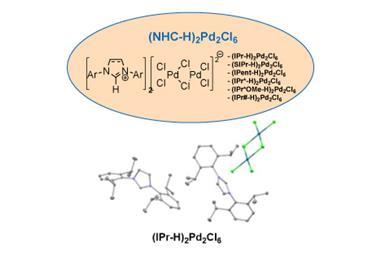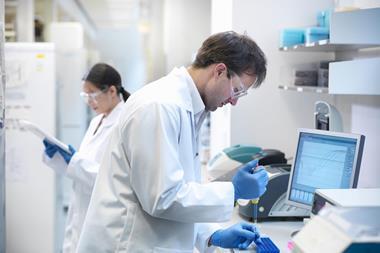In September, a group of scientists and engineers gathered to discuss some of the challenges they face in getting to market faster, reducing product costs and gaining insights more quickly
The group of business leaders in the world of R&D was asked to share experiences working with data to drive innovation and the role of analytics in delivering value for their organisations. A report from global management consultancy McKinsey The age of analytics: Competing in a data-driven world says organisations that lead the way in data analytics are staking out significant advantages. In manufacturing they achieve up to 50% lower product development costs – so the pressure is on to leverage the data that many companies are generating. Having the right tools to connect and analyse large datasets is essential. However, making the cultural shift to embrace data analytics is not always easy.
Having data that is connected has improved insight into the supply chain and encouraged better collaboration
Dan Middleton, chief of digital manufacturing, Rolls-Royce turbines unit
‘You need to make sure you’re providing the right tools, the right training and the right support,’ said Gary Finka, the senior director who heads up GlaxoSmithKline’s biopharm research team and is responsible for developing and embedding innovative tools and processes to de-risk its portfolio. When domain experts feel they are contributing a vital skillset ‘they’re able to share in the success of driving more value,’ he added.
Driving an innovation culture
Dan Middleton is chief of digital manufacturing in Rolls-Royce’s turbines unit – which is part of its civil aerospace business. He oversees digital transformation across 14 global sites, including one of the world’s leading casting and machining centres. Automation at his organisation generates data in high volumes. Middleton explained that there can be a level of fear attached to creating such large quantities of data because people don’t always know what to do with it, at least initially, but once that data is connected, you start to gain insights. In the case of Rolls-Royce’s turbines unit, it has improved insight into the supply chain and encouraged better collaboration.
DoE is very visual, so it gives people a very quick overview of what you have done and found
Victor Guiller, chemistry R&D engineer at Fuchs Lubrifiant
JMP European technical manager Malcolm Moore highlighted the importance of subject matter experts. ‘Some of the promises of big data hype make people feel insecure,’ he said. ‘That’s because it suggests that inexperienced people can be just as productive as experienced people. Data analytics supplements what you know and helps you learn faster. There’s no substitute for subject matter expertise.’ By putting the right tools in the hands of domain experts, you can gain insights more rapidly and work more productively with the same resources.
Ensuring data collection efforts fuel innovation
The reality for many R&D teams is that there is more work than time available, resources are stretched, and outcomes and timeframes can be unpredictable. Design of experiments (DoE) is critical for realising the benefits of data analytics quickly. It helps businesses make better decisions faster and meet project milestones more predictably. This in turn helps to reduce stress levels on individuals, leading to more productive, efficient teams.
Tatjana Königsmann is a team manager in R&D at surface-finishing solutions provider Atotech, where she works on new products. She described the stresses of delivering results in time and as efficiently as possible: ‘There are days when the pressure is quite high. You want to do it in very short timescales, and you have to learn a lot quickly.’ DoE is fundamental to her team’s ability to deliver results.
Victor Guiller is a chemistry R&D engineer at France-based lubricants and specialty products solutions provider Fuchs Lubrifiant. As the co-leader of an international working group focused on new methodology, he is already seeing early success with DoE. Both Königsmann and Guiller agreed that DoE is a ‘win–win’ for everyone because it allows for the extraction of the maximum possible information in the minimum amount of time.
With data analytics in the hands of a subject matter expert the data comes alive and protects against wrong decision-making
Malcolm Moore, JMP European technical manager
The group agreed that dynamic, science-driven discussion is far more powerful than providing a set of results on static slides. Interaction with the analysis can happen live during meetings. When data analysis is done in a dynamic way, an organisation speeds up its decision-making.
Leveraging big data in the era of the Internet of Things and Industry 4.0
Planning how and why to collect data in the first place is a vital part of embracing data analytics. Finka explained how his organisation collects a wide variety of data. ‘How you connect that data has been the biggest challenge that we had to solve before we could start extracting the most value from the data that we’re actually generating,’ he added.
Pharmaceutical engineering company NNE managing consultant Per Vase questioned the way some organisations approach data collection. ‘All the companies we work for are active in big data but when we ask them about the value they want to create from it, surprisingly we don’t always get a clear answer,’ he said.
Business and technical consultant Stan Higgins put it succinctly: ‘It needs domain experts to say, ‘this is what we should be doing with the data’ not management to say, ‘what shall we do with all this data?’’ Discussing the impact of the hype surrounding big data, AI and machine learning, the group agreed that the role of the subject matter expert is key. Moore described how learning from data is a continual process: ‘It is only by overlaying subject matter knowledge on top – putting data analytics in the hands of the subject matter expert – that data analytics comes alive and protects you from making wrong decisions that then cost you down the line,’ he added.
‘People have a tendency to wait too long before they start doing the analytics,’ Vase said. ‘Do it in parallel with data collection and make it accessible. When you start analysing it, you get feedback on how to collect, combine and contextualise data. You create value when you analyse data and make decisions.’
Despite substantial challenges and internal pressures in their different industries, the members of the discussion group all agreed that data analytics, DoE and the ability to visualise and communicate results persuasively lie at the heart of their successes. By adopting a data-driven, best practice approach, they are personally more effective at their jobs and their teams are more productive, helping to drive innovation across their organisations.
The event took place at the Royal Society of Chemistry’s Burlington House in London. You can watch the recording of the roundtable discussion here.
Register here to download the full article exploring the group’s discussion of innovation momentum and data analytics.


















No comments yet